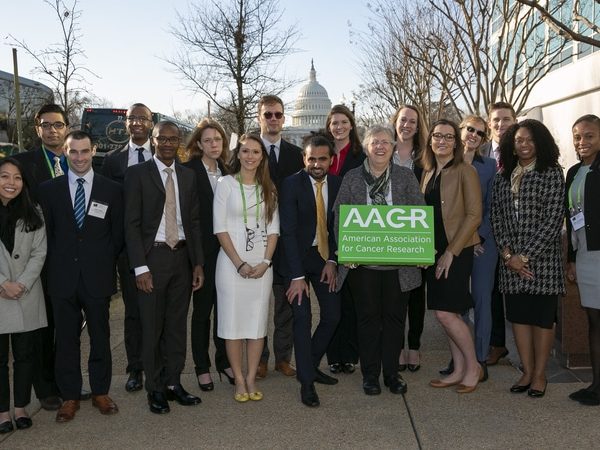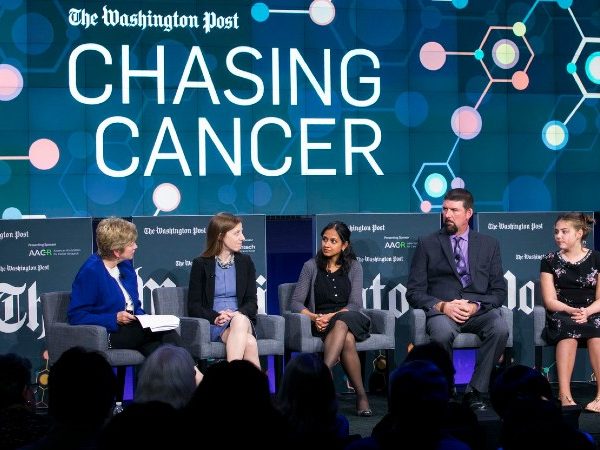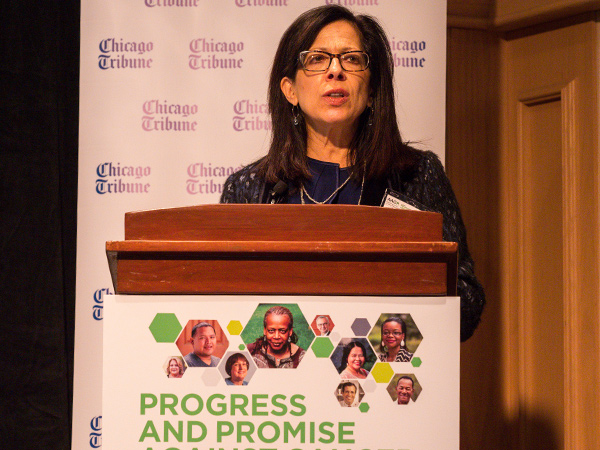Cancer Precision Medicine – Philadelphia
Big Ideas in Cancer: A Philadelphia Public Education Event
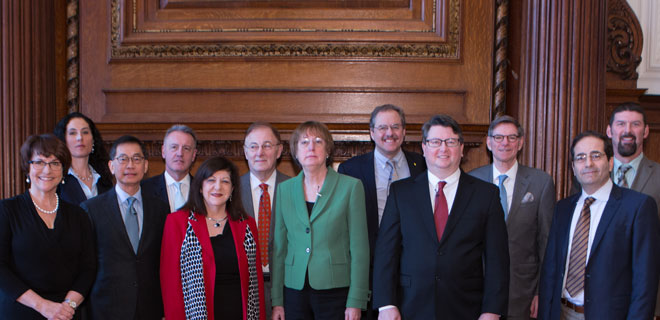
Emily Whitehead was five years old when she was diagnosed with incurable acute lymphoblastic leukemia (ALL).
“When she was diagnosed, I can remember picking her up in the emergency room and I said, ‘you know Emily, only the strongest kids are picked to have cancer, and you will beat this cancer'” Tom Whitehead recounted recently to a room full of 200 cancer patients, survivors, and medical professionals at a public education event hosted by the American Association for Cancer Research (AACR) and the Philadelphia Media Network, owner of the Philadelphia Inquirer.
Emily, now 10 years old, not only beat her cancer, but was the first child in the world to have her immune system trained to fight back against her disease. Treated at the Children’s Hospital of Philadelphia (CHOP), Emily’s T cells were collected, genetically programmed to recognize her cancer, and then inserted back into her blood stream to attack cancer cells. Her story is a success story for precision medicine, and her treatment is just one example of the big ideas in cancer that were presented at last month’s event.
The event, entitled “Cancer Precision Medicine: Big Ideas in Research, Treatment, and Prevention,” featured six Pennsylvania cancer center directors on a stage together for the first time: AACR President-Elect Nancy Davidson, MD, director of the University of Pittsburgh Cancer Institute, joined Dario Altieri, MD, CEO and director of the Wistar Institute Cancer Center; Chi Dang, PhD, director of the Abramson Cancer Center at the University of Pennsylvania; Richard Fisher, MD, president, CEO, and director of the Fox Chase Cancer Center; Karen Knudsen, PhD, director of the Sidney Kimmel Cancer Center at Jefferson University; and George Prendergast, PhD, president and CEO of the Lankenau Institute for Medical Research at Main Line Health.
“To have some of the region’s greatest minds in cancer research with us today, all of whom are members of the AACR and leaders of their own regional institutions, is really a great honor,” said Margaret Foti, PhD, MD (hc), chief executive officer of the AACR, as she opened the event.
The event was made up of panel discussions with the six cancer center directors that explored two big ideas in cancer research: immunotherapy and interception.
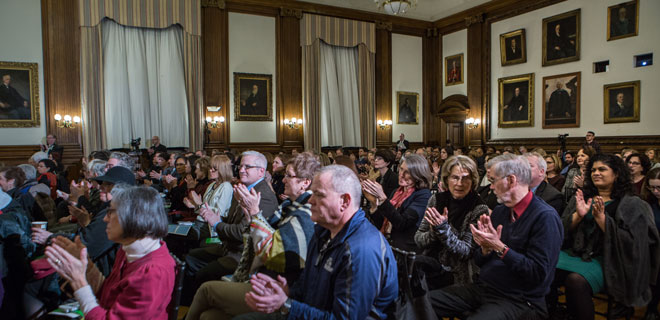
Stephan Grupp, MD, PhD, one of Emily’s doctors at CHOP when she went through her T-cell therapy, presented the first big idea that immunotherapy treatments could be available to treat pediatric leukemia patients worldwide. Immunotherapy has the potential to help relapsed patients get back into remission, get patients to bone marrow transplant in the best shape possible, or allow patients to skip transplant all together, he said.
But what if we could develop therapies to tackle pre-malignancies before they develop into cancer, asked William Hait, MD, PhD, AACR treasurer and global head of research and development for Janssen, in his presentation of the second big idea in cancer research. Just as researchers have been using pap smears and colonoscopies for decades to prevent the development of cervical cancer and colorectal cancer respectively, Hait’s team at Janssen is interested in interventions that disrupt cancer-causing conditions or processes. They are currently investigating whether siltuximab, an anti-IL-6 monoclonal antibody, can halt the progression of smoldering myeloma, an early stage, slow-growing type of multiple myeloma, into a full-blown disease.
Interception is a big idea for cancer prevention that we could add to the list of well-established prevention strategies in use today including screening, public policy interventions such as smoke-free laws, and vaccines that are approved to prevent cervical cancer.
Increasing the age of sale of tobacco products across the country, encouraging greater HPV vaccine uptake, establishing federal legislation to prohibit the use of tanning beds by youth, these are “simple things [for cancer prevention] that require our will and require us to work together as a society and with our politicians,” said Davidson during panel discussion.
The panel discussions invoked thought-provoking questions from the audience, which extended the interesting discussion among the cancer center directors. In its coverage of the event, the Philadelphia Inquirer captured many of the panelists’ ideas from throughout the program.
This event is just one of the ways the AACR is growing its public presence in Philadelphia and across the country through a concerted public affairs program dedicated to educating the public about cancer and cancer research. As the first and largest cancer research organization in the world, the AACR has begun to showcase big ideas in cancer research that AACR members are pursuing to develop research, treatments, and prevention strategies to lessen the burden of cancer.
